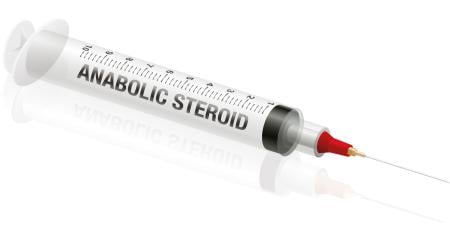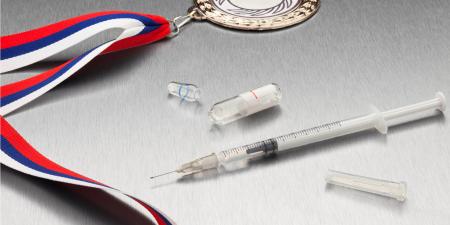Case
Dr. Jarvis, a family physician, enters the exam room to see his next patient, Jim, a star basketball player for the Springfield Tigers, the local high school team. Jim is here today for his routine preparticipation physical examination. He reports that the team has great potential and is hoping to win the state championship. Jim inquires somewhat tentatively about how he could get stronger. Thus far, he has only been using creatine and protein powder and is not satisfied with his strength gains.
In the course of the exam, Jim asks about steroid drugs and mentions that some friends told him that new-generation steroid drugs are not banned from sports. They saw some of these drugs on an Internet site that said their products worked like the real thing but were technically legal. "They must cost a lot of money," observes Dr. Jarvis, trying to remain nonjudgmental for the moment and aware that these drugs sell for several hundred dollars or more. Jim says the pros do it and everyone knows some of the best athletes are "juiced." He says he wants that edge but asks what Dr. Jarvis thinks.
Dr. Jarvis says steroids are questionable as an "edge," but they're a danger sometimes. Too many kids are using them to build muscle too fast and actually get injured as a result. Dr. Jarvis says, "depending on what this drug was, Jim, I might have to report it to someone, the school, your folks, even the police. Many of these drugs are restricted by state and federal laws. And your health is at stake." Jim says OK, and asks the doctor not to tell anyone about their conversation. The doctor suggests some other conditioning methods, completes the screening physical and tells Jim to schedule a follow-up appointment closer to the season. Dr. Jarvis is worried about Jim but is unsure of what his obligations are to the athlete—he does not want to condone the use of nutritional supplements but, if Jim is going to take them, Dr. Jarvis does not want him to do so without medical supervision.
Commentary 3
Rather fail with honor than succeed by fraud.
-- Sophocles, Greek dramatist (496-406 B.C.)
This case presents a commonly encountered scenario in a physician's office and raises several interesting issues. Before discussing the ethical issues, however, the health and safety issues must be addressed, as these substances are not innocuous. The case does not mention the age or physical maturity of the patient, but let us assume that he is still a growing adolescent who has not reached physical or sexual maturity. Although these drugs are called "steroids" the proper name for them is "anabolic-androgenic steroids." This is important because although athletes take these drugs for their anabolic (muscle-building) effects, they also have androgenic properties (expression of male secondary sex characteristics) as well. This latter property is what accounts for their adverse effects. There are several health concerns regarding the use of exogenous testosterone in a developing adolescent, and the physician should address these.
The next point concerns what supplement or drug the patient is taking and where he is obtaining it. From the vignette, it appears that the patient is considering taking pro-hormone dietary supplements. These substances, such as androstenedione, 19-norandrostenedione, etc, are sold as dietary supplements through loopholes in the 1994 Dietary Supplement Health and Education Act (DSHEA) and 1990 Anabolic Steroid Control Act. Although these drugs should properly be classified as anabolic-androgenic steroids, they are currently sold as dietary supplements in the United States. Research at the UCLA Olympic Analytical Laboratory and other centers has demonstrated that these supplements are converted in the body to anabolic steroids and can increase levels of testosterone or other anabolic steroids. A new Anabolic Steroid Control Act (HR 3866) is currently being debated in Congress that would correctly reclassify these drugs as anabolic-androgenic steroids.
The other major health issue is where the patient obtains these substances. If the patient is referring to pro-hormone dietary supplements, then purity is of great concern. Again, research from our Lab and others has demonstrated that dietary supplements frequently do not contain what is on the label and are laced with impurities. Owing to DSHEA, consumers cannot rely on labeling of dietary supplements for accurate content and purity. Thus, the product that Jim thinks he is taking may not be what he is actually ingesting. Of even more concern would be if Jim is buying products from black market sources. These are fraught with impurities, and there have been many reports of athletes consuming potentially hepatotoxic veterinary products. Of course, if Jim is buying anabolic steroids and not pro-hormone supplements, that is illegal and considered a felony.
An additional concern that the physician might raise is one of drug testing. If Jim is planning to eventually pursue athletics at the collegiate level, his decision to use anabolic steroids might have long-term effects. For example, injectable 19-nortestosterone (nandrolone) can be detected by sophisticated drug testing for 12-14 months. A decision made for short-term gain may result in a one-year suspension when Jim enters college.
Health issues aside, this case also raises significant ethical issues for Jim, his team, and his community. Unfortunately, the decision to use performance-enhancing drugs does not just affect the athlete who is using them. There are some drugs that are so effective that they significantly alter the sport. If one competes in a sport where others are using these drugs, he or she has 3 options: (1) compete at a competitive disadvantage, (2) decide to take the drugs in order to stay competitive, (3) quit the sport. I would argue that all 3 are poor ethical choices.
The ethical choice, in my opinion, is to respect your sport and your competition and play fair according to the rules of the game. Some have argued that banning certain drugs is "arbitrary." That is true, but "arbitrary" does not necessarily have a negative connotation. To some degree, all rules in sport are arbitrary. The Yankees could put 15 players in the field, but it wouldn't be what all of us consider major league baseball. The same is true regarding rules pertaining to performance-enhancing drugs. There are substances that can so alter the landscape of a game that the very nature of the sport is changed. There is a good ethical choice: respect the game, play by the rules, and at the end of the day know that you have given your best within the existing standards of the sport.
In the debate about the use of performance-enhancing drugs in sport and drug testing, you often hear people recite that drugs are less dangerous than the inherent risks in sport or that there is no such thing as a truly level playing field. While those arguments may all be true, what are the alternatives? If the choice is to allow athletes freely to take whatever drugs they wish, then we have already witnessed that scenario: The former German Democratic Republic. The East German program was well documented and despite medical supervision, extensive testing, and the efforts of sports scientists, several individuals died and there were numerous serious health effects. When you interview athletes, the ultimate stakeholders in this debate, that is not a world that the majority of them want to compete in. There is an oft-quoted article in which the majority of Olympic athletes claim they would take a drug to win a gold medal even if they would die in 5 years. That is refuted by a slew of former East German athletes who are now suffering infirmities from past ergogenic drug use who state they would gladly trade their gold medals for healthy bodies.
In sum, the physician needs to realize that he or she has an obligation to the patient's short- and long-term health. There is also a distinction between "monitoring" someone's health and "condoning" detrimental behavior. Ordering a chest x-ray for a cigarette smoker does not mean the physician condones smoking. If the chest x-ray is normal, the physician doesn't tell the patient to continue smoking! Performance-enhancing drug use is no different. According to the 2001 NCAA Survey of Substance Abuse, athletes ranked physicians last in terms of whom they went to for advice on dietary supplements. In this case, Jim obviously felt comfortable enough with his physician to bring up this issue. I believe it is incumbent on physicians to use each patient visit as a chance to improve the health of his or her patients. This case demonstrates a wonderful educational opportunity to make a positive impact in this patient's life. The physician should embrace it wholeheartedly.



